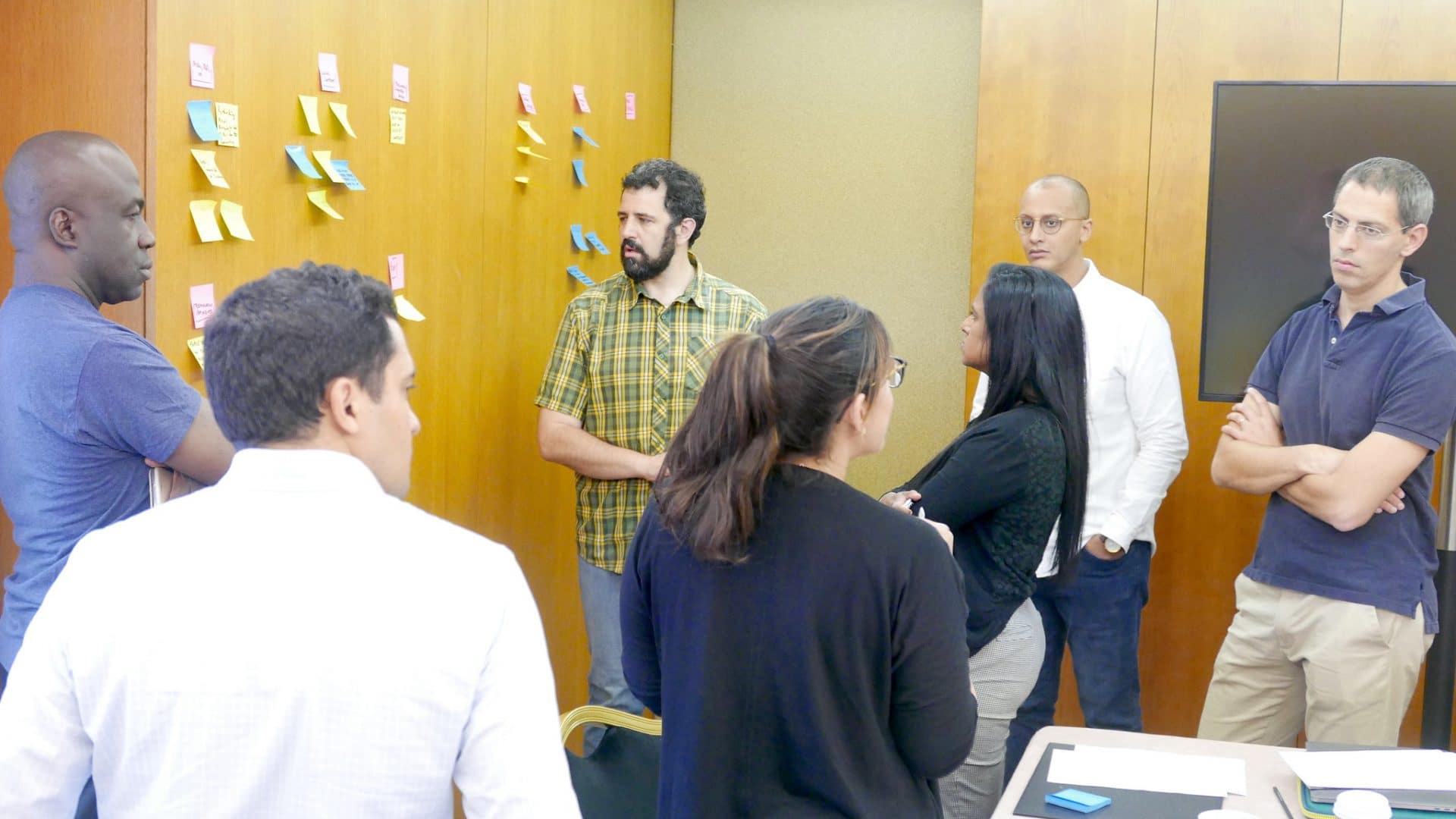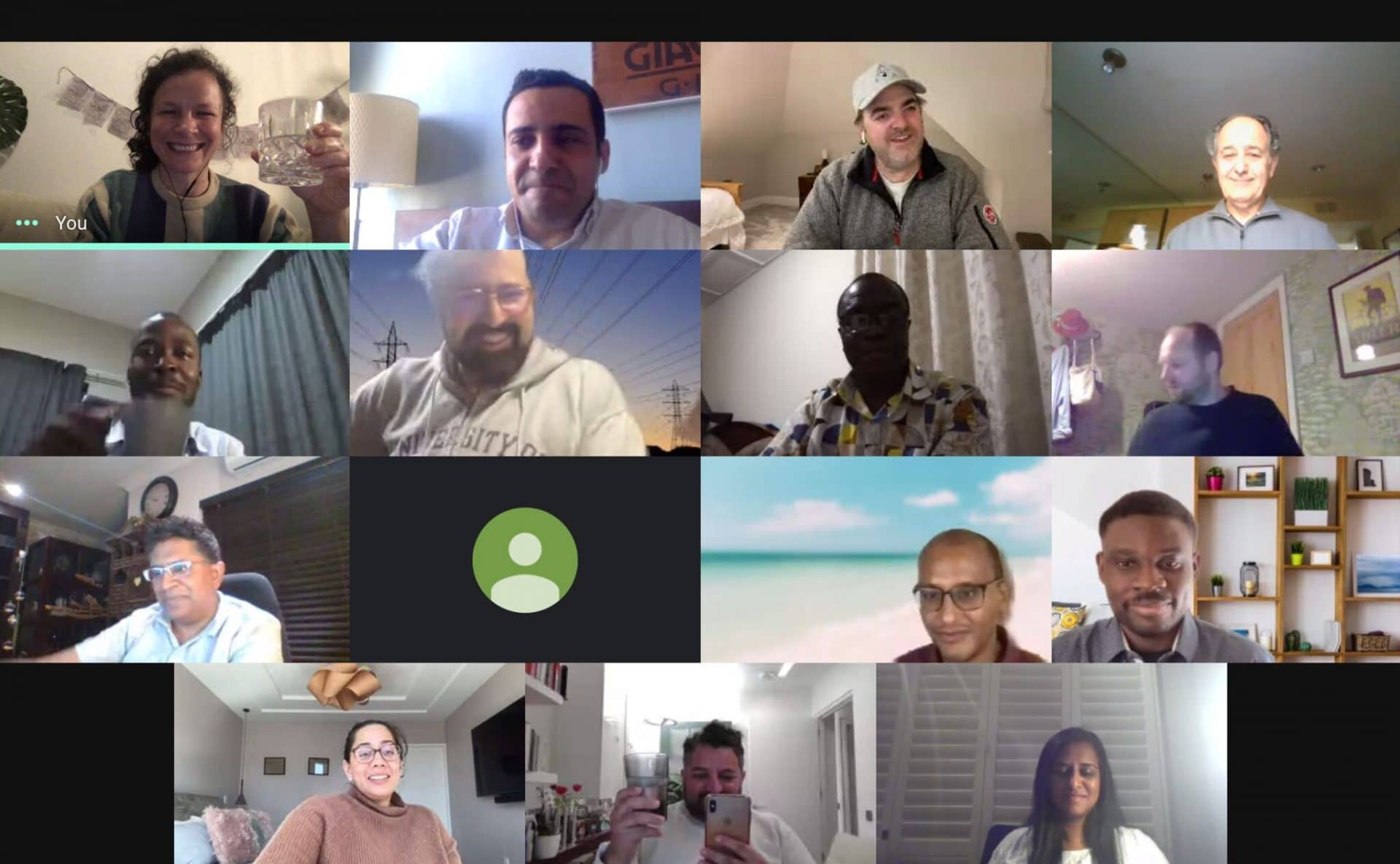15th Anniversary Spotlight: An Exclusive Interview with Mohammed Loraoui
The heart of Book Sprints has always been innovation. Throughout our 15 years, we’ve had the privilege of working with leaders and trailblazers innovating in their own fields. We had the opportunity to speak to one such pioneer in law and policy work – Mohammed Loraoui from the Commercial Law Development Programme of the United States Department of Commerce. He chatted with us about the major advantages the Book Sprints method has in their field of law and policy and its importance in translating complex ideas into accessible formats.

Mohammed Loraoui is an Attorney-Advisor with the Commercial Law Development Program (CLDP) in the Office of the General Counsel of the U.S. Department of Commerce, where he works on CLDP’s energy initiatives. His programming focus is on enabling private investment in energy, power and infrastructure projects including CLDP’s support for Power Africa. He received his Juris Doctor from the American University, Washington College of Law.
Prior to joining CLDP, Mohammed worked at the National Democratic Institute (NDI), where he helped manage programs in the Arabian Peninsula. Prior to working at NDI, Mr. Loraoui served as the associate director of Dialogue Programs at the Project on Middle East Democracy (POMED) where he coordinated international conferences promoting U.S.-Middle East dialogue.
Profile and photo taken from https://cldp.doc.gov/about-cldp/staff-bios/mohammed-loraoui
Mohammed first encountered Book Sprints through a book published in 2013, Oil Contracts: How to read and understand them. He and a colleague read the book when they were in Iraq. “I actually reread it when I went to law school as well,” Mohammed shared.
Through this book done with a small non-government organization, the Book Sprints method was brought into focus for the Commercial Law Development Programme (CLDP) under the US Department of Commerce. Since then CLDP has done seven Book Sprints with us, producing six handbooks in the Understanding series and one handbook on methane abatement. An eighth Book Sprint is on the horizon for early 2024. “I think over the past decade it hasn’t just shown that we can do it because now we have six books,” Mohammed reflected.
“Other teams are using it, […] and at least from my team, it’s become one of our biggest deliverables. It’s become something that we’re known for and it’s because of the amazing work you guys do.”
Initially, the venture into using Book Sprints was just a test to see if it would work for the field of law and legislative work or not. In the first Sprint that Mohammed joined actively in content creation, he actually said that the process sounded deceptively easy. “I remember going in being like ‘Well this isn’t gonna be that hard. We’re just gonna update the first one. It’s gonna be really easy. We’re definitely gonna finish it in three days.’” Mohammed shared. “And then by day four after we’ve had all of the discussions and you helped us pack so much [in], […] I remember sitting there [thinking] ‘There’s no way this is gonna be done.’” he laughed. “But then of course, by Friday afternoon, I was like – ‘Oh, this is coming together.’”

The team brainstorming the update for the second edition of the Understanding Power Purchase Agreements book.
That Book Sprint revealed several strengths of the method for the work that CLDP does. Mohammed shared the the facilitators of the Book Sprints are instrumental to providing a neutral perspective on the narrative of the book. “That’s the thing that you and the facilitators do so amazingly well – you really help pack all the different issues and really help us identify where there are holes in the narrative of what we’re trying to say,” Mohammed said. He also added, “You’re very good at helping us identify certain things […] to really just help the authors figure out whether it makes sense, whether it doesn’t, whether that takes away from what we’re trying to share or not.”

The authors celebrate the conclusion of the Understanding Power Transmission Financing Book Sprint with a virtual toast!
Most importantly, Mohammed felt that the Book Sprints method and facilitation allowed diverse perspectives to be unified into a single resource that placed each voice on equal ground.
“The Secret Spice in your sauce is the ability to really socialize people for these books. The authors all come in with different perspectives, and these aren’t people that necessarily talk to each other or really see the process from each other’s perspective. But having them in a room together, having them talk to one another, and having you facilitate that discussion really puts everyone in the other people’s perspective. And then when you’re writing this book, it just becomes kind of a neutral resource.”
The Book Sprints method has also been ideal for translating the complex ideas that they work with into text and visual aids. “Look at the transmission handbook,” Mohammed said, “and you can see how the visualization was used to tell a story that I think is really helpful.”
“One thing that I’ve noticed about the books that’s definitely been improving is the graphics and how we share information through visuals.” Mohammed also said. “These are very complex ideas and concepts that we’re trying to share, like the PPA handbook graph – I’ve seen it on so many slides […] and it’s not just that in the handbooks, it’s become much more than just each one of the handbooks.” Mohammed shared that their team has also been reusing the content for other forms of communication to make the material of the books even more accessible. One of these is through the creation of slide decks for each chapter and animated shorts. Mohammed described that these slide decks are “where we borrow and steal from those [handbooks], where we repurpose those graphs because a lot of people want to have that visual as well.” The slide decks for each chapter allow people to download and reuse that information elsewhere.
Mohammed looks forward to exploring with Book Sprints other ways that complex information can be made more accessible, such as through the book websites we’ve done for some partners. “I wonder if it’s gonna be something more of a resource that’s available virtually but not necessarily in print or maybe available in some other kind of way,” Mohammed mused. “Of course I love the book, but I wonder if it’s gonna be moving to some other kind of knowledge sharing media [like the website].” Stay tuned to see what comes next for the CLDP and Book Sprints partnership on this front.
For Mohammed, Book Sprints was a surprising discovery that continued to prove fruitful over a decade of constant partnership, providing the means to achieve major multi-sectoral goals. The books in the Understanding series that CLDP produced through Book Sprints, for example, were part of a larger effort to support the Power Africa initiative in the goal of doubling electricity access in Sub-Saharan Africa. Through the Book Sprints method, CLDP was able to collaborate with and combine the perspectives of contributors from African governments, multilateral institutions, development banks, private developers, procurement consultants and leading international law firms in an efficient and effective manner. Beyond the books, the insights generated from these massive collaborative undertakings are now also being “reused” and transformed through other forms of media for greater accessibility.
The heart of Book Sprints has always been innovation. After a decade and a half, we’re proud to share how the method brings together diverse perspectives to create an output with several opportunities for application. The adventure doesn’t end here – we look forward to innovating in more disciplines and industries for years to come. Ready to be a pioneer in your field? If you are interested in creating transformation with Book Sprints, reach out to us at contact@booksprints.net to get started.
